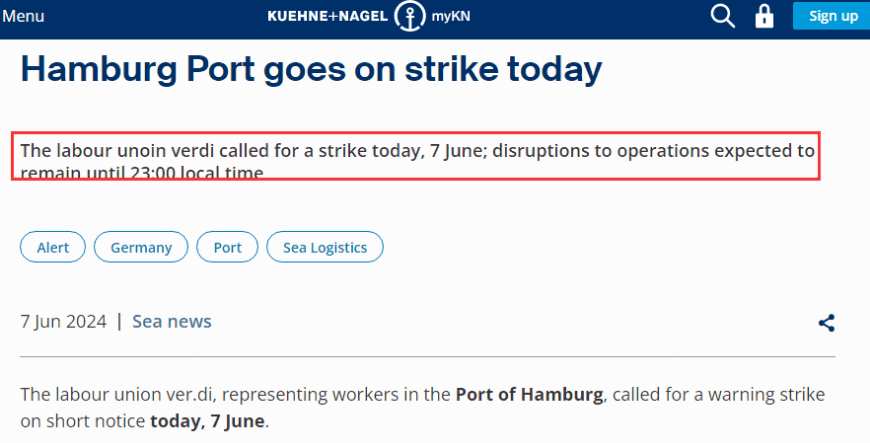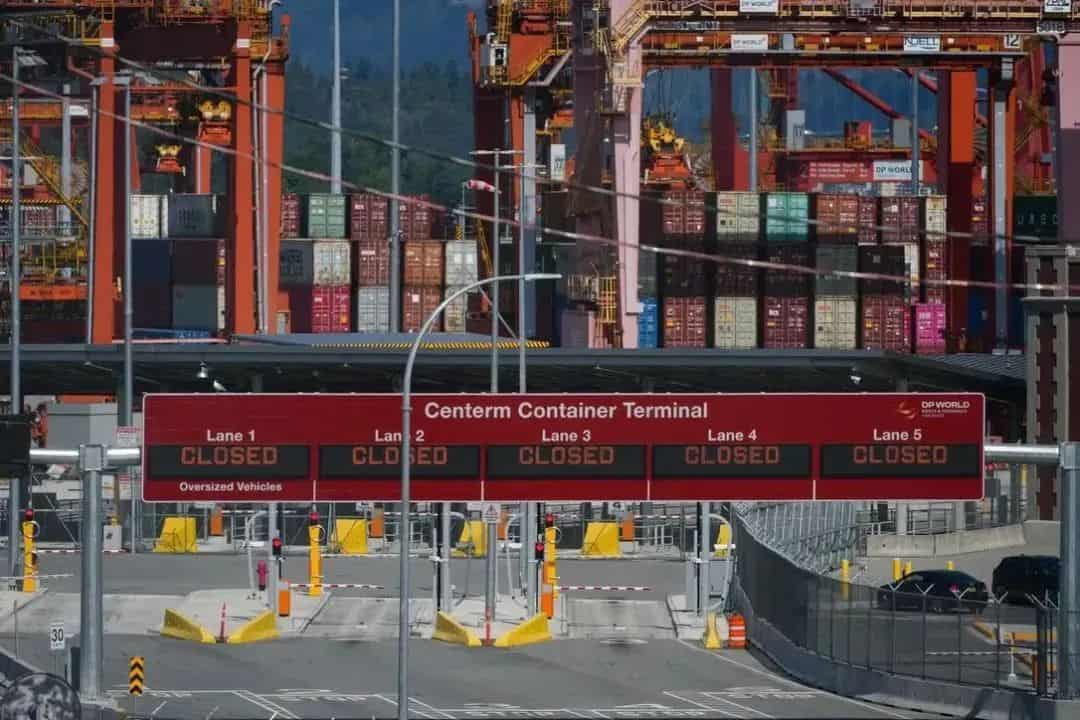French workers are truly fierce. As shown in the image, dockworkers in Le Havre directly pushed cars into a fire to block port traffic. The first wave of strikes at Le Havre and Fos ports has already had an impact, causing four ships to cancel their calls and 18 ships to be delayed, with a chain reaction affecting four other French ports. To defend their rights, the unions have planned to intensify their strike efforts in the coming weeks. On June 13th, 21st, and 25th, there will be full-day strikes. Additionally, there will be three days of four-hour work stoppages each week this month. If the unions do not receive a satisfactory response from the government, the strikes could extend into July. Therefore, those planning to ship goods from France should pay attention.
Recently, the International Longshoremen’s Association (ILA) announced a pause in negotiations with the United States Maritime Alliance (USMX). The ILA represents over 85,000 dockworkers on the North American East Coast, the Gulf Coast, the Great Lakes, Puerto Rico, and major U.S. rivers. USMX represents employers in the East Coast and Gulf Coast dock industry, including container shipping companies, major maritime terminal operators, and port associations representing every port on the East Coast and Gulf Coast of North America. The local agreements between the two parties will expire on September 30, 2024, affecting about 45,000 dockworkers at East Coast and Gulf Coast ports in the United States.
Reasons for the Pause:
Automation Dispute: The ILA discovered that APM Terminals and Maersk Line are using an automated gate system that can process trucks without ILA labor. This is seen as forcing U.S. ports to automate, potentially reducing ILA jobs.
Union Stance: The union promises to strike in October if a new contract cannot be finalized. The union’s chief negotiator stated that USMX continues to violate existing agreements, with the sole purpose of reducing ILA work hours through automation, making further negotiations with USMX meaningless. As the largest dockworkers’ organization in North America, the ILA’s actions will undoubtedly have a profound impact on the shipping and logistics industry. As warned by the ILA president, if a contract cannot be reached, it could lead to dockworker strikes, directly affecting cargo transportation on the U.S. East Coast and Gulf Coast, with a chain reaction impacting related industries and the job market.

According to foreign media reports, on June 7, local time, container terminal workers in Hamburg launched a warning strike, causing terminal operations to halt. The union representing Hamburg port workers, Verdi, stated that the second round of negotiations with German port operators for higher wages did not achieve results on Thursday. “The offer made by employers is completely inadequate,” said a Verdi negotiator. To pressure for better compensation, the union called for dockworkers to strike at the Hamburg port, stopping work from 5:30 am on the 7th until midnight. According to the union, about 6,000 employees at the Hamburg port are affected by the collective bargaining. Among other things, the union demands a 3-euro per hour wage increase from June 1 and corresponding increases in shift allowances.

DHL stated that the strike affected container handling operations at all terminals. Rail and truck transportation operations were also suspended that day. Due to the pressure on terminal berths, delaying schedules could affect handling processes throughout the week. Additionally, the loading and unloading of ships will be delayed, requiring continued close monitoring of the situation. Terminals owned by Hamburg Port and Logistics Corporation (HHLA) and Eurogate were also affected. HHLA stated that its Hamburg branches, including the Burchardkai (CTB), Altenwerder (CTA), and Tollerort (CTT) container terminals, would join the strike. A spokesperson said that these terminals would be almost completely shut down. On the afternoon of the 7th, five large container ships, including “HMM Helsinki,” were stranded at the terminal. Terminal operations were planned to resume at midnight, with extended working hours over the weekend to reduce the impact of the strike. The third round of negotiations is scheduled for June 17 and 18 in Hamburg. Verdi is demanding retrospective wage increases and adjustments to shift bonuses to help low-wage groups cope with inflation.
Potential strikes at the Canadian border could threaten the logistics supply chain. Canadian Border Services Agency (CBSA) employees passed a strike resolution, meaning that over 9,000 union members will have the right to strike legally, maintaining only minimal services. This will cause significant disruptions to the movement of goods, services, and people at Canadian entry points.

If a strike begins, Canadian entry points will face severe customs clearance delays and insufficient services. Especially during the busiest travel and trade season between the U.S. and Canada in June 2024, this will be particularly severe. The union stated that similar actions three years ago nearly halted cross-border commercial traffic, causing significant delays at national airports and borders.

Welcome to CHINA VAST GROUP, a distinguished enterprise established in 2005. As a leading service provider in China, we specialize in international logistics and supply chain services, with a commitment to innovation, mutual benefit, and win-win partnerships. We operate through three principal divisions: CHINA VAST LOGISTICS CO., LTD., VASTFORTUNE STORAGE AND TRANSPORTATION CO., LTD. and VASTREACH SUPPLY CHAIN CO., LTD., each dedicated to excellence in their fields.
